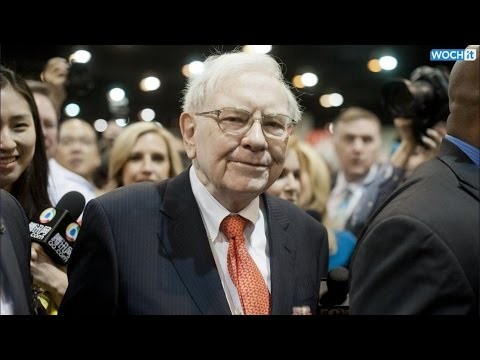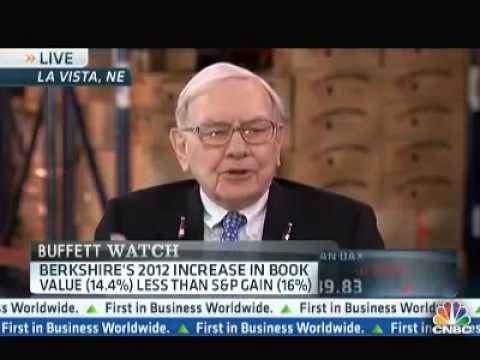Warren Buffett Watch Dow ChemicalBerkshire deal nears milestone Money
Post on: 14 Август, 2015 No Comment

Related Links
Posted: Sunday, July 27, 2014 1:00 am
Berkshire Hathaway soon may have a new entry on its list of big-time stocks: Dow Chemical.
We’re not predicting a purchase by CEO Warren Buffett or his investment lieutenants, Todd Combs and Ted Weschler. Dow would become a major Berkshire holding through a transaction that dates to 2008.
That year, Buffett supplied Dow with $3 billion to help buy specialty chemical company Rohm & Haas Co. receiving preferred shares of Dow stock in return. The shares pay Berkshire a yearly dividend of 8.5 percent, or about $225 million.
Terms of the deal say that if Dow’s share price closes higher than $53.72 for 20 days during a 30-day trading window, Dow can convert the preferred shares into common stock and stop paying the dividend.
The price reached that trigger level last week for the first time in nine years, Bloomberg News reported. Wednesday’s closing price was $53.89 and $53.84 on Thursday, before dropping to $53.71 on Friday.
Investors took note of the coming deal (or at least the news story) by trading 14 million shares on Wednesday, an unusually large volume. Thirty trading days from Wednesday is Sept. 3.
Bloomberg said converting the preferred stock would be a milestone for Dow CEO Andrew Liveris, who has worked to boost the company’s share price by 21 percent this year and logged a tenfold increase in net income, to $4.4 billion, since 2009.
Buffett may be sad to see the preferred dividend end, but if Dow makes the conversion, by our calculation Berkshire would end up with 72.6 million shares of Dow, worth about $3.9 billion and becoming one of Berkshire’s top dozen stock holdings.
Based on Dow’s current common stock dividend, Berkshire would receive about $75 million a year besides benefiting from future increases in Dow’s stock price, if any.
Electric competition
Government agencies in China say at least 30 percent of the cars they will buy through 2016 will be “new energy vehicles,” including plug-in hybrid cars and models with fuel cells and solar-powered batteries.
That should be good for BYD Inc. the Chinese auto and battery maker that is 10 percent owned by Berkshire Hathaway, right?
Maybe so, Danny King wrote for AutoblogGreen. After 2016, the percentage of electric vehicles purchased will increase, part of an effort to reduce exhaust pollution in China’s largest cities.
But Aaron Mamiit notes in TechTimes that the auto market in China — reportedly the largest in the world in terms of number of cars sold each year — may soon be crowded with electric versions of well-known brands.
Tesla Motors is ready to sell its Model S in China, BMW plans to enter the market in September with its i3 electric car and Volkswagen plans to sell its e-Up electric car there, too. BYD has an order for 1,200 electric buses in Dalian, China, and 2,000 buses and 1,000 electric taxis in Hangzhou.
The government’s long-term goal is to have a half-million electric vehicles on the road by 2015 and 5 million by the end of the decade. But consumers remain doubtful about the price, reliability and convenience of the electric cars. So far, fewer than 7,000 electric passenger vehicles have been sold in China.
BYD also recently signed a contract to build a $400 million factory in Brazil to make recyclable iron-phosphate batteries.
Speaking of the poor
Two-thirds of the wealthiest Americans, including Warren Buffett, think there’s too much income disparity.

That’s about the same percentage as the general population, who, according to researchers, believe “differences in income in America are too large,” wrote Catherine Rampell in the Washington Post.
Lots of people complain about “limousine liberalism,” she wrote, questioning such items as Chelsea Clinton’s speaking fees or New York Times columnist and economist Paul Krugman receiving $25,000 a month from an institute that studies income inequality.
“The implication,” Rampell wrote, “is that to credibly care about — and advocate on behalf of — poor people, you need to take a vow of poverty yourself.”
She called that viewpoint “highly problematic.”
Low-income people don’t get much attention or credibility when they complain about rich people’s tax rates or expanding the social safety net, she wrote, while wealthy people get headlines for saying the same thing.
Buffett said in 2012 that most people can’t afford a political action committee to influence government, so he has a responsibility to react publicly to important issues. “If you have an ability to speak out and you see things that you think are wrong,” he said, “I think you ought to talk about them.”
Wrote Rampell: “Given this state of affairs, I would much rather the megarich wield their wealth and influence to try to improve conditions for the working class, rather than to further pad their pocketbooks.”
If 1 percenters talk about an unfair wage spread, she wrote, that’s not hypocrisy. “It’s empathy.”
The Omaha World-Herald Co. is owned by Berkshire Hathaway Inc.
Live Blog Warren Watch: Tuesday, July 29














